Have you ever been unsure about what gift to choose for a wedding? In such moments, it’s recommended to choose auspicious gifts that convey your wishes for the couple’s happiness. However, there are also items that should be avoided as they are considered inauspicious for wedding gifts. In this article, we’ll introduce both gifts that are well-received and those that are actually considered taboo. Let’s cover the key points to avoid making mistakes when selecting a gift!
Auspicious Gifts
Now, let’s take a look at some recommended auspicious gifts for wedding celebrations.
Katsuobushi (Dried Bonito)
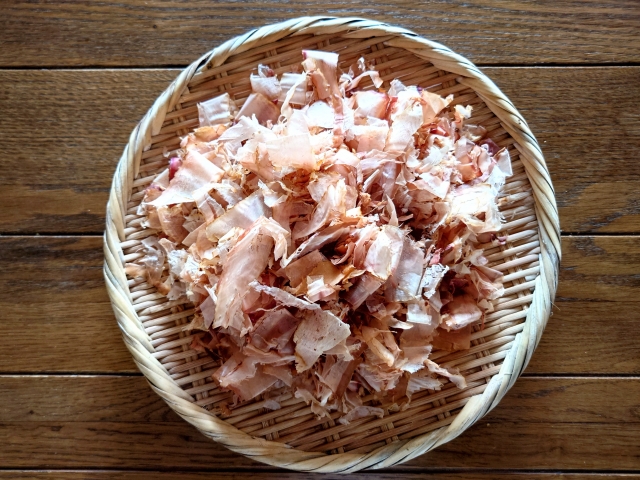
Katsuobushi is made by filleting a bonito into three parts, and then further dividing one half into two pieces, resulting in two types: “male fillet” made from the back side of the fish and “female fillet” made from the belly side. The way these two fillets fit perfectly together symbolizes the bond between a married couple. For this reason, katsuobushi has traditionally been given as an auspicious gift at weddings and engagement ceremonies.
Additionally, the cross-section of katsuobushi resembles the rings of a tree, which is believed to symbolize prosperity and longevity. In the past, katsuobushi was written as “勝男武士” (victorious warrior) and was used as a reward for samurai. Because of this background, katsuobushi has long been valued as an auspicious item.
Couple Chopsticks and Couple Rice Bowls
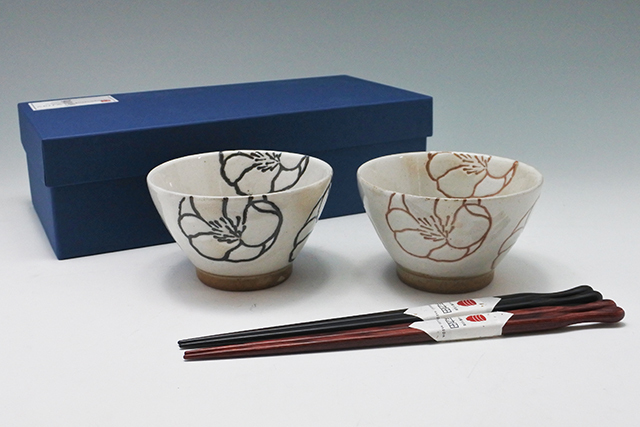
While many people give stylish dishes or plates as wedding gifts, “couple chopsticks” are also recommended as a meaningful gift. Chopsticks symbolize a “bridge” that connects people, and the fact that a pair of chopsticks consists of two sticks that are always together represents the close bond of a married couple. Why not wish the newlyweds happiness in their new life together by giving them an auspicious pair of couple chopsticks as a wedding gift?
Similarly, couple rice bowls make a wonderful gift. In newlywed life, everyday dishes are especially useful, and a pair of rice bowls carries the hope that the couple will use them together happily. By selecting stylish rice bowls that suit the couple’s tastes from a variety of designs, you can give a practical yet auspicious gift.
Owl and Mandarin Duck Items
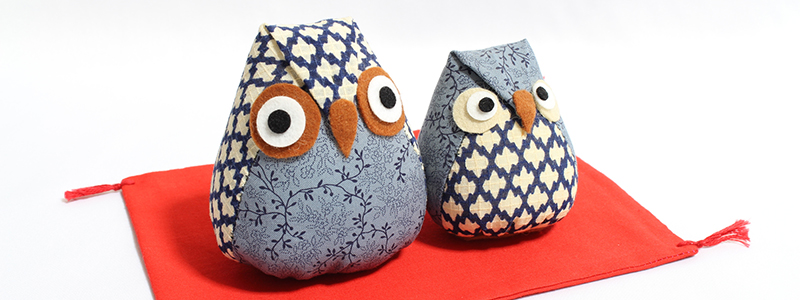
Owls have long been cherished as auspicious symbols because the characters “不苦労” (no hardships) and “福来郎” (bringing good fortune) can be used as puns for the word “owl” in Japanese. It’s a perfect gift for weddings or for those embarking on a new chapter in life, with the wish that “they may always be happy.”
Moreover, the mandarin duck, a member of the duck family, is a symbol of a harmonious couple because they are often seen together as a pair. This is where the term “oshidori fūfu” (a harmonious couple) comes from. For these reasons, owls and mandarin ducks are very popular as wedding gifts.
For example, a pair of mugs or a set of chopsticks featuring owl or mandarin duck designs are perfect as wedding gifts. The owl motif carries the wish for a “future free of hardships,” while the mandarin duck motif expresses the hope that the couple will “always be close.”
Additionally, couple rice bowls decorated with mandarin duck patterns or owl figurines for home decor are also auspicious, practical, and heartwarming gifts that will be appreciated. By giving these gifts, you can express your wish for the recipient’s happiness and a long-lasting bond.
Gourds
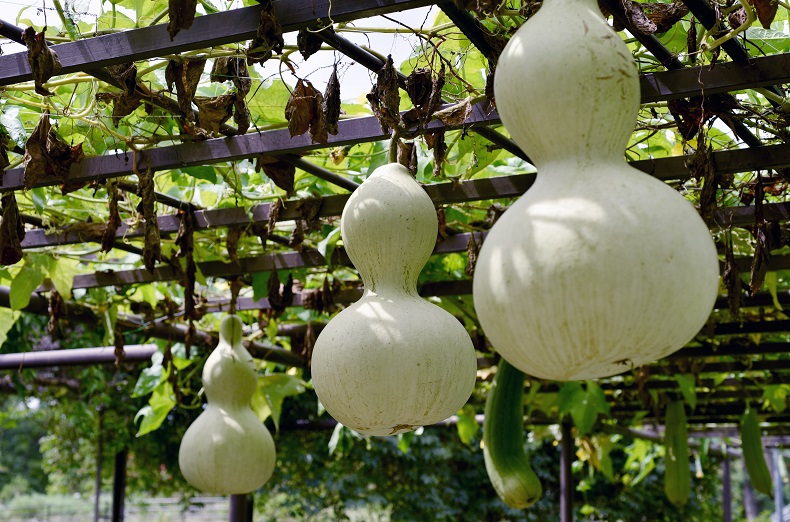
Gourds have been considered auspicious symbols of prosperity for many generations, thanks to their resemblance to the beautiful curves of a woman’s body and the fact that they produce many fruits. In Feng Shui, gourds are believed to enhance health and financial luck and are known as items that invite good fortune.
Gourd-shaped items are very suitable as wedding gifts. For example, gourd-shaped interior ornaments or pairs of wine glasses with gourd designs are popular choices. These gifts symbolize the health and prosperity of the newlywed couple, bringing good luck to their everyday life.
Moreover, gourd-themed chopstick rests or small containers are practical and auspicious gifts that will be appreciated. Consider choosing these gourd-shaped items as a gift for the special couple, with the wish for abundant blessings and long-lasting prosperity.
Red and White Items
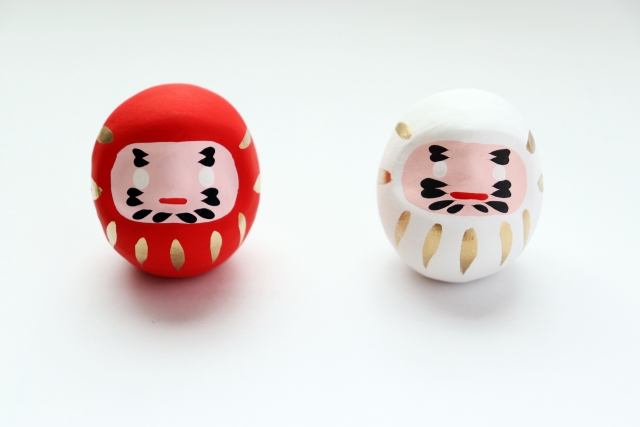
Red and white are widely used in traditional Japanese celebrations, symbolizing good fortune. In Japan, there has long been a custom of cooking red rice and serving mochi at celebratory events, with the combination of red and white being cherished as “auspicious colors.” Red represents the birth of life, and white symbolizes purity, with some believing these colors together symbolize the entire cycle of life from birth to death. Moreover, in weddings, the bride often wears a white kimono (shiromuku) with a red lining, making red and white a particularly auspicious combination.
Items that incorporate the red and white combination are an excellent choice as wedding gifts. For example, a pair of red and white rice bowls or chopstick sets are popular gifts that convey traditional auspiciousness. Additionally, red and white towel sets or red and white floral arrangements are perfect as wedding gifts.
Furthermore, Japanese sweets made with the red and white combination or celebratory sake are also recommended. These gifts, which respect ancient traditions, make for a thoughtful present that celebrates the new couple’s journey together.
Cranes and Turtles

Cranes and turtles have long been cherished in Japan as symbols of longevity and good fortune. Cranes, in particular, are known for their lifelong monogamous partnerships, making them an especially fitting motif for wedding celebrations. For these reasons, items themed around cranes and turtles make for wonderful gifts, expressing wishes for a long life and happiness.
For example, a pair of teacups or couple chopsticks with crane and turtle designs are auspicious items that bring good fortune to the daily table. Additionally, hanging scrolls or decorative plates featuring cranes and turtles are popular as home décor. These gifts convey wishes for the newlyweds’ long-lasting health and happiness.
Furthermore, Japanese sweets featuring crane and turtle motifs, or gifts of red and white mochi adorned with crane and turtle decorations, are also perfect for wedding celebrations. These gifts, which honor ancient Japanese traditions, are a thoughtful way to pray for a happy future.
Inauspicious Gifts
On the other hand, there are gifts considered inauspicious. Be careful not to give these as wedding presents.
Breakable Items
The reason breakable items are avoided as wedding gifts is due to the negative connotation of “breaking.” If glass or ceramic dishes are accidentally dropped, they can shatter into pieces, making cleanup difficult and possibly causing injury. The image of something “breaking” can be associated with the couple breaking apart, which is why breakable items have traditionally been considered inappropriate as wedding gifts.
However, this is a general perspective, and recently, practical glassware or dishes for a new household are being reconsidered as wedding gifts. Breakable items can indeed be useful, and if chosen carefully, they can be well-received gifts.
The key is to have the right knowledge and select a gift that will truly make the recipient happy. Just because something is breakable doesn’t necessarily mean it must be avoided; with careful selection, it can become an entirely suitable wedding gift.
Sharp Objects
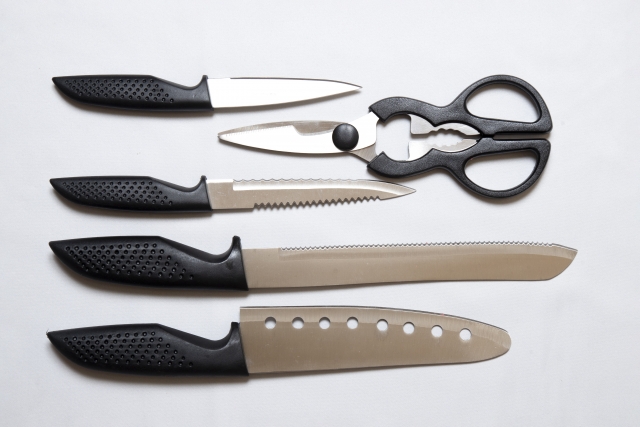
Sharp objects are also avoided as wedding gifts for a reason. Items like scissors or knives can evoke the image of “cutting apart” the bond between the couple, making them taboo as wedding gifts. While you may consider giving them for their usefulness in cooking, they can leave an inappropriate impression on the recipient, so caution is needed.
Given that weddings are special occasions meant to celebrate the couple’s bond, it is safer to avoid sharp objects. When choosing a gift, consider auspicious items and select a present that will bring joy to the recipient.
Combs
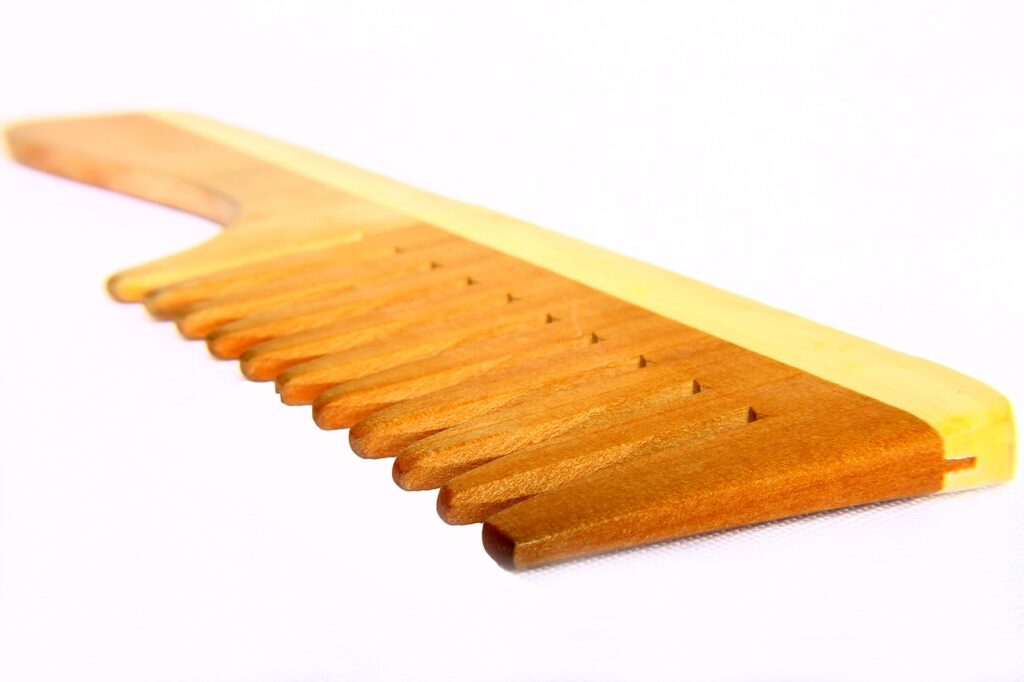
Combs are considered inauspicious gifts because the pronunciation of the word “comb” (kushi) in Japanese can be associated with “ku” (苦, meaning suffering) and “shi” (死, meaning death). While it’s not common to give combs as wedding gifts, they are generally avoided in celebrations overall. Similarly, numbers associated with bad luck, such as “4” or “9,” should also be avoided.
Handkerchiefs
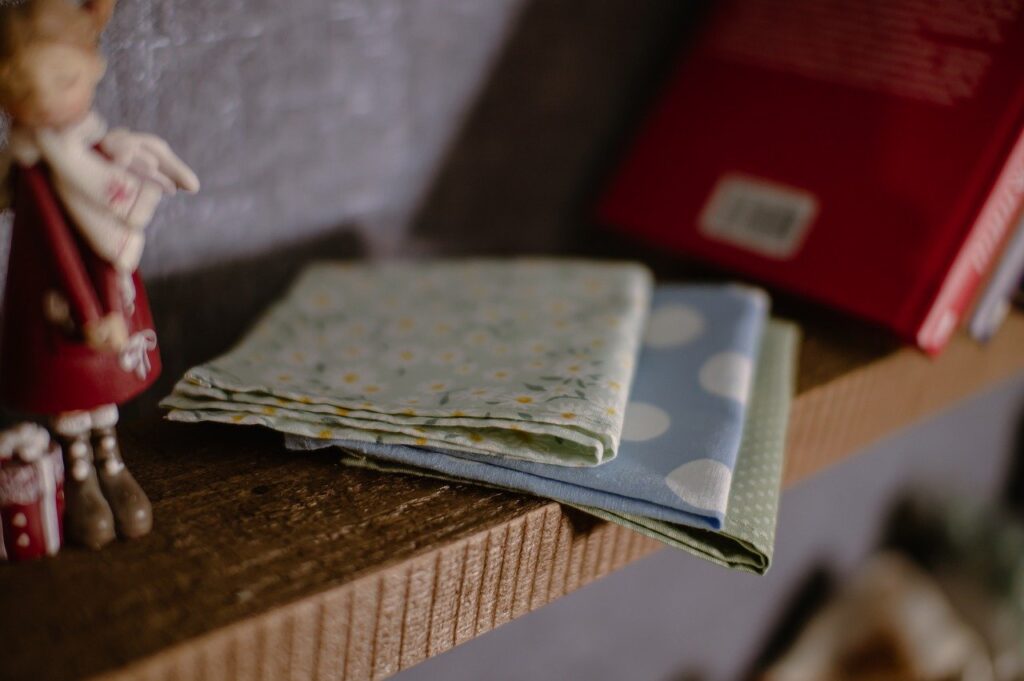
Handkerchiefs are often chosen as gifts when you don’t want to impose, but they are taboo for wedding celebrations. In Japanese, the word for handkerchief is written as “手巾” (tegire), which can be interpreted as “cutting ties,” potentially conveying the idea of “severing the marital bond” or “ending the relationship with the recipient.”
Since weddings are special occasions in life, it is better to avoid handkerchiefs and choose an auspicious gift that will bring joy to the recipient.
Japanese Tea
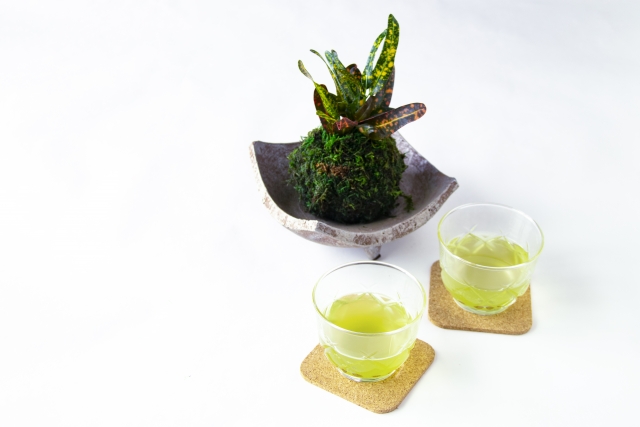
Although Japanese tea is often treasured as a traditional gift, it is actually one of the items to avoid as a wedding gift. The main reason for this is that Japanese tea is primarily used in funerals. Therefore, giving Japanese tea as a wedding gift might evoke associations with unfortunate events.
On a joyous day like a wedding, it is best to avoid items that could give an inauspicious impression. If you wish to give tea, consider other options such as black tea or coffee.
How to Write the Noshi
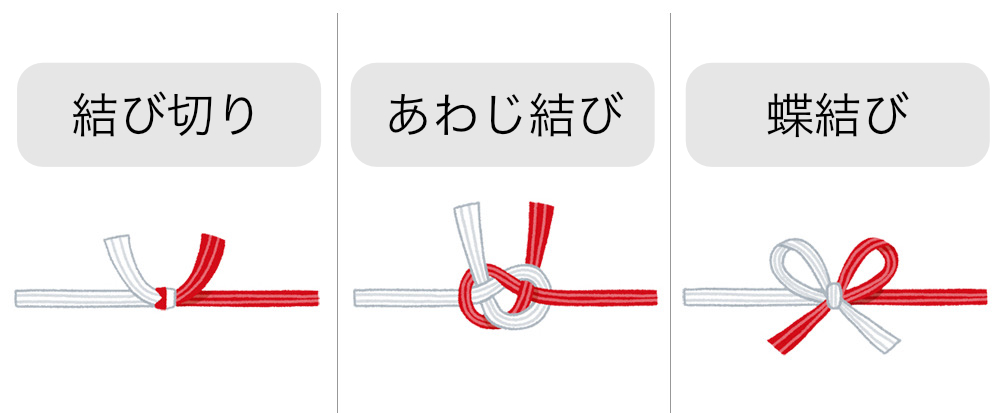
When giving a wedding gift, a noshi (ceremonial wrapping) is essential. It’s important to pay attention to how the noshi is written and the type of mizuhiki (decorative knot) used.
First, the upper half of the noshi paper should include the “label.” For a wedding gift, appropriate phrases include “御結婚御祝” (Congratulations on Your Marriage), “祝御結婚” (Celebrating Your Marriage), or “御結婚” (Wedding Celebration). The lower half of the noshi paper should include “the sender’s name.” Be careful not to accidentally write the recipient’s name instead.
Additionally, the noshi paper is adorned with a mizuhiki, and the type you choose is crucial. For wedding gifts, you should use a “musubikiri” (tight knot) or “awaji musubi” (Awaji knot). These types of knots are difficult to untie once tied, making them appropriate for celebrations that should happen only once, such as weddings.
On the other hand, a “butterfly knot” is easy to retie, making it suitable for repeated joyful events such as childbirth or long life celebrations. Using a butterfly knot for a wedding gift is considered inappropriate, so be sure to select a “musubikiri” or “awaji musubi” instead.
Conclusion
How was it? A wedding gift is a special token of celebration for a new chapter in life. By choosing a gift that brings good fortune, you can enhance the happiness of the couple. However, unknowingly giving an inauspicious item could spoil your good intentions. Make sure to keep in mind the points introduced in this article, carefully selecting gifts that are appropriate and avoiding those that are taboo. Give a wedding gift that will truly bring joy to your loved ones!




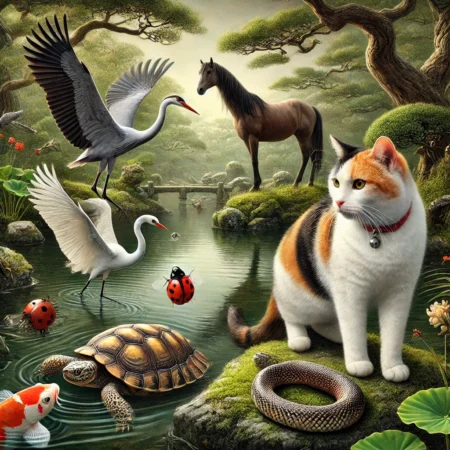


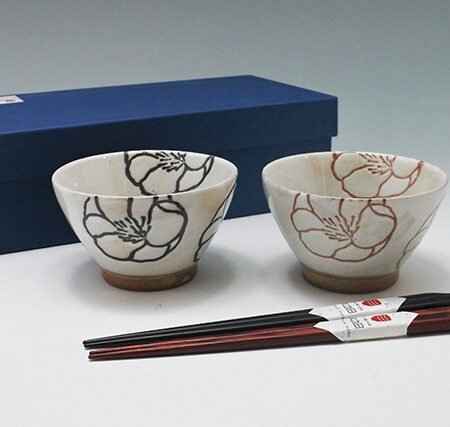
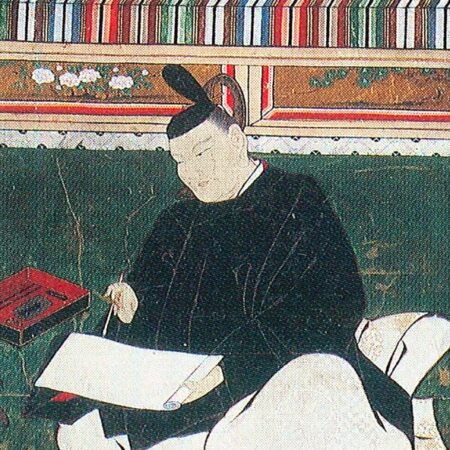
コメント